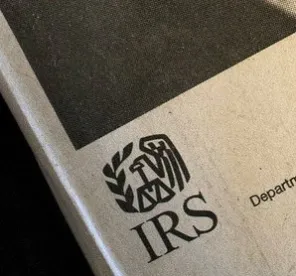In the wake of the 2019 novel coronavirus (COVID-19) pandemic, the Internal Revenue Service (IRS) released Notices 2020-29 and 2020-33. Among other things, these notices provide various forms of relief under Internal Revenue Code (IRC) Section 125, which covers cafeteria plans and flexible spending accounts (FSAs), as well as IRC Section 129, which covers dependent care assistance programs.
FOUR KEY CHANGES RESULTING FROM IRS NOTICES 2020-29 AND 2020-33
1. Relief for mid-year election changes
IRS Notice 2020-29 provides temporary relief from some of IRC Section 125 limits on mid-year election changes. Under Notice 2020-29, employers may amend their cafeteria plans to allow an eligible employee to:
-
Make a new cafeteria plan election to add employer-sponsored health coverage, if the employee initially declined such coverage
-
Revoke an existing election for employer-sponsored health coverage and make a new election to enroll in different health coverage (e.g., a change in enrollment from self-only coverage to family coverage)
-
Revoke an existing election for employer-sponsored health coverage if the employee attests in writing that he or she is or will be enrolled in other health coverage not sponsored by the employer
-
Change a health and/or dependent care FSA election (including revoking an election, making a new election, or decreasing or increasing an existing election)
If an employer wants to implement any of these changes, it must amend its cafeteria plans. Although there are a few exceptions, the amendment generally must be effective prospectively only (and the newly permitted election changes may only be made prospectively). Additionally, this mid-year election relief is only applicable during calendar year 2020 (or a shorter period).
2. Claims period for FSAs extended
IRS Notice 2020-29 provides that a cafeteria plan (including a plan with an FSA “carryover” feature) may be amended for any plan year or grace period ending in 2020 to permit participants to use any remaining FSA amounts (that would otherwise be forfeited) for eligible expenses incurred through December 31, 2020. Importantly, the IRS cautions employers with major medical coverage compatible with health savings accounts (HSA) that an expense reimbursement deadline extension with respect to health care FSAs could constitute disqualifying coverage for an employee who is enrolled in the major medical coverage. In that case, the employee may be prohibited from contributing to an HSA during the extended period.
This relief is available to a cafeteria plan with a non-calendar year plan, or a calendar year plan that provides for a grace period that ends in 2020. A calendar year cafeteria plan that does not have a grace period is unable to take advantage of this relief.
3. Increase in carryover limit
Beginning with 2020 and continuing for future years, IRS Notice 2020-33 increases the existing maximum $500 carryover amount for a plan year to an amount that is equal to 20 percent of the maximum health FSA salary reduction contribution under IRC Section 125(i)for that plan year. For 2020, the maximum amount that health FSA participants may carry over to the plan year beginning in 2021 is $550 (i.e., 20% x $2,750, which is the indexed 2020 contribution limit for health FSAs). For the 2019 plan year and amounts carried over into 2020, the limit remains $500.
4. Plan amendments
An employer that wants to take advantage of the relief described above for the 2020 plan year must amend its cafeteria plan. The amendment will be considered timely if it is made prior to December 31, 2021. A timely-adopted amendment may be retroactive if the plan operates in accordance with the requirements of IRS Notices 2020-29 and/or 2020-33, and all eligible employees are provided notice of the changes.
EMPLOYER CONSIDERATIONS
Employers weighing whether to implement any of the rules described above should consider factors such as adverse selection and the potential negative impact of the changes on employees’ ability to contribute to HSAs. In any case, as stated above, the employer has the option whether to adopt any of the changes provided in IRS Notices 2020-29 and 2020-33.




 />i
/>i

